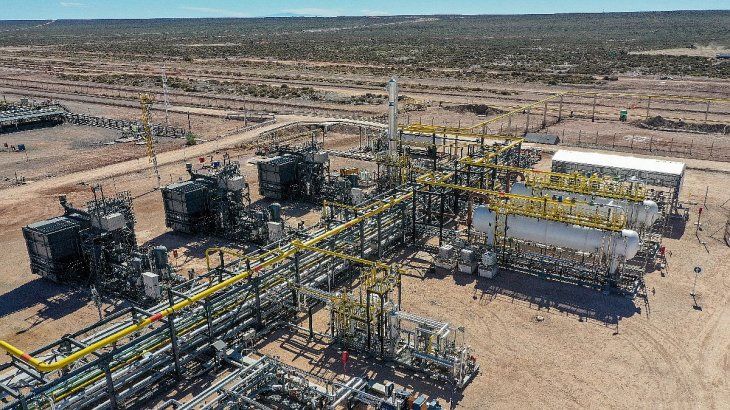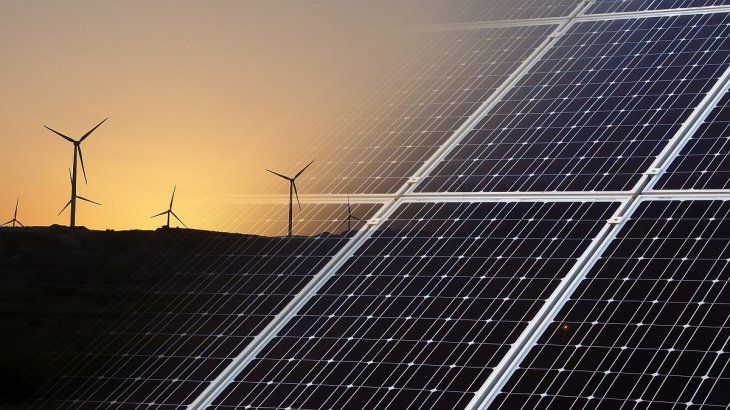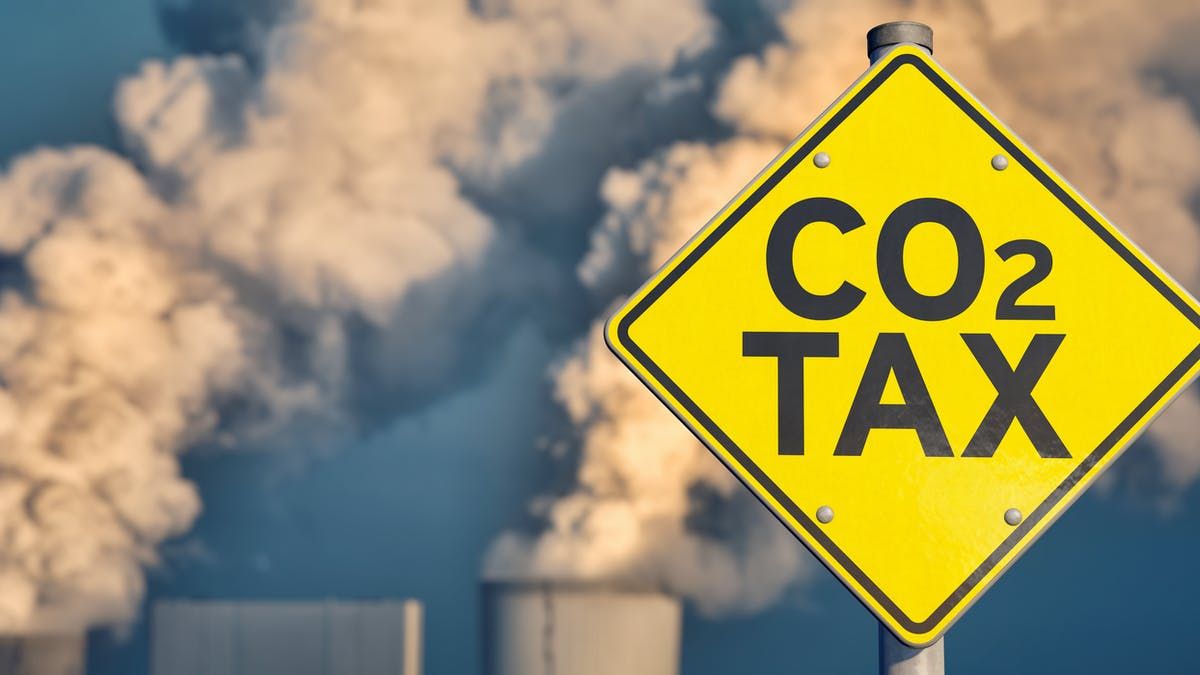We are facing the last decade capable of curbing climate change if we want its irreversible consequences to be at least manageable. From the hand of young people who are not willing to sit idly by simply watching the planet consume itself, the climate crisis is taking an increasingly central place on the political agenda
Technocracy’s solutions to climate change are often complex subsidy systems and huge, inefficient government programs funded with taxpayer money. Joe Biden is a clear example: complex tax benefit programs and regulations without including a carbon tax. Just when most specialists agree that the most efficient way to achieve a significant reduction in carbon emissions in the timeframe that the world needs to avoid environmental catastrophe would be to apply a carbon tax.
China carbono.jpg
A carbon tax would not only quickly lower emitters, but could also reduce inequality and stimulate economic growth. How? By allocating what is collected with it to reduce taxes on work.
The carbon tax by itself would increase the prices of electricity, gas and gasoline, but if with the proceeds the taxes on work are reduced, that equation would generate salary increases.
According to a study by the organization Tax Foundation, In the United States, an emissions tax of $ 50 per ton, growing at 5% per year, would generate $ 1.87 trillion in additional revenue for the federal government in 10 years. The tax alone would have a negative impact of 0.4% per year on GDP, it would cut wages and eliminate the equivalent of 447,000 jobs. But if the money collected is used for other purposes, such as reducing taxes on labor, it would generate a positive result on GDP, on wages and a redistributive effect. The report cites that with this money, 2.4 percentage points of the contributions made by employees to finance social security could be lowered. This would cause an additional 0.1% increase in GDP and an increase in income for the 95% of the lowest earning Americans.
Another alternative would be to use these funds to benefit companies’ investment in research and development. This would have a positive effect on GDP of 0.8% per year but negative on most wages.
The report concludes that a well-designed carbon tax is the most efficient way to restrict emissions, while reducing social inequity and increasing economic growth. Another report, produced by the Brookings Institution states that A carbon tax in the United States of $ 50 a ton, growing by 5% per year between 2020 and 2030, could cut emissions as much as 50% below 2005 levels.
The second issue that arises with a carbon tax is a moral one. The countries that have contributed the least to climate change are those that are suffering the worst consequences. North Africa is being spatially affected with great desertification, it has more and more climatic refugees. “Merchants of thirst”As they are called, they profit from desertification, selling water transported in tanker trucks at exorbitant prices. The richest 1% of the world’s population emits more than twice that of the poorest 50% each year. North Americans 3 times more per capita than Europeans.
Economic impact and opportunity
The European Union is preparing to impose a tax on imports with a higher carbon intensity than allowed in certain national energy-intensive industries. The goal is to prevent high-emitting companies from simply moving their operations to non-EU countries that do not have a CO2 tax and then shipping their products to Europe. For example, if in Sweden it is very expensive to produce by broadcasting, I simply move the factory to a place where it can broadcast without being charged tax and imported the product. The only thing that is achieved is the geographical transfer of emissions, not what matters: its reduction.
Another aspect to consider: emissions measured by consumption can vary greatly from those measured by production. UK emissions are 42% higher if imported CO2 is taken, those of Sweden almost 70%. On the other hand, those of South Africa are 29% lower and those of Australia 9%.
co2.jpg

Carbon dioxide is one of the main drivers of climate change.
Pixabay
In our country we can still avoid imposing a carbon tax, but in the future we will not be able to avoid that many of our imports have to pay it when they arrive at their destination, which could put us at a clear commercial disadvantage. The impact will not be seen from one day to the next, it will start in Europe for certain products, but it will expand as renewable energies, electric cars and industries that replace gas with hydrogen expand in developed countries. It will be a gradual but steady process that we will see in the next two decades.
The carbon tax, just as it implies a challenge, also represents an opportunity. Argentina it has a relatively clean electricity matrix with a significant share of hydropower, gas (transitional energy) and strong growth in renewables. From the south to the north of the country there is potential for expansion of these new energy sources.
Although we have lithium for batteries, thinking about factories of international level in our country requires a more open economy and a more stable economic environment. The same is true of the transition to the age of electric and autonomous vehicles: It is necessary to reconfigure the automotive industry, a process that will require large investments and increase the scale of the market through free trade agreements.
Shell Vaca Muerta Oil Processing Plant 3.jpg

Shell Argentina
Renewable energy will allow international technology companies that have made the commitment to be neutral in their emissions to install their servers. Also cryptocurrency mining companies such as the recent announcement of Bitfarms.
With low-cost renewable energy, the hydrogen industry could also be developed, which could be a substitute for gas not only for part of the transport system such as freight trains, but also for the steel, steel and cement industries that are more difficult to de-carbonize. The great advances in low-emission livestock would open new markets for our meats.
Sooner or later strong pressure to decarbonize will come, and it is best to anticipate a transition that could be traumatic. If we know how to take advantage of the opportunity, it could be a boom for our exports and our economy.
For every worker lost in a coal mine, new ones will be generated by installing and maintaining windmills and solar panels. For every job lost in a combustion car factory, several will be generated in electric car and battery factories, as well as in research and development. For every job lost in the oil industry, several will be generated in the hydrogen industry, in electric car charging networks and in multinational companies that would be installed throughout the country to produce carbon-neutral goods and services. . The geographical conditions of Argentina would allow caring for the environment to be a country brand.
electric car sustainable mobility

Xiaomi’s goal is to market the first model in 2023.
Pixabay
Today in Argentina the issue is not discussed because the issue is seen as “spending” amid other pressing issues, such as poverty, inflation, instability, physical and legal insecurity. Take it as “spending” It is a wrong criterion, since a lot can be done without spending taxpayers money as I explained in relation to the carbon tax. And because at some point the economy and the new generations will force the issue to be at the center of the political agenda. They are already demanding it with conferences and demonstrations so that the preservation of the environment is considered a matter of state.
How to compensate for the increase in prices and loss of competitiveness resulting from a carbon tax? Today 50% of the cost of gasoline, and between 40% and 50% of the cost of electricity and gas are taxes. Part of these taxes could be replaced by a carbon tax. This would reduce the fiscal cost and increase in prices at the same time that it would open an incentive for companies to reduce their emissions.
To avoid the loss of competitiveness, a tax credit could be generated for exporters of energy-intensive industries for part of the amount paid for this tax.
The same criterion of the carbon tax can be applied to plastic, as in fact European countries do. Israel plans to reduce plastic consumption by 40% with the implementation of this tax. With this measure, not only the amount of plastic that affects the seas and biodiversity is reduced, but also the CO2 emissions for its production.
renewable energies.jpg

Pixabay
The energy transition will not be without its shocks as we are seeing in global energy markets. The disruptions of the pandemic coupled with the lack of investment in renewable energy are already generating strong increases in electricity prices in Europe. Liquefied natural gas is up 500% in one year, there are power outages in China, coal shortages in India and oil shortages in Britain. Despite the high prices, companies do not want to invest much in gas and oil because with the de-carbonization of the economy the horizon of fossil fuels is a few decades. According to the International Energy Agency (IEA), If we want to achieve net zero emissions in 2050, investments in renewable energy should triple to reach 4 trillion annually in 2030.
The models predict in our country an increase in extreme meteorological phenomena such as extreme rains in most regions, a greater risk of floods, heat waves, droughts and more frequent forest fires.
Against this background, carbon and plastic taxes are only part of the solution, much will be needed in terms of reforestation, protection of forests and natural ecosystems, sustainable livestock, new agricultural methods, energy efficient buildings, adaptation and construction of infrastructures to protect cities and the territory against climate change. The transition implies the commitment of the government at all levels, of companies and civil society. We are entering a decade where we can no longer avoid tackling the environmental issue in a comprehensive and forceful way. We must do it for the planet, for the economy and because it is a moral obligation that, as individuals and humanity, we owe to our descendants and future generations.
Financial Advisor. Author of The rebellion of the pandemials.




